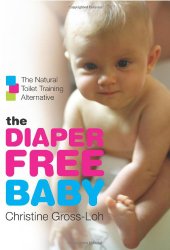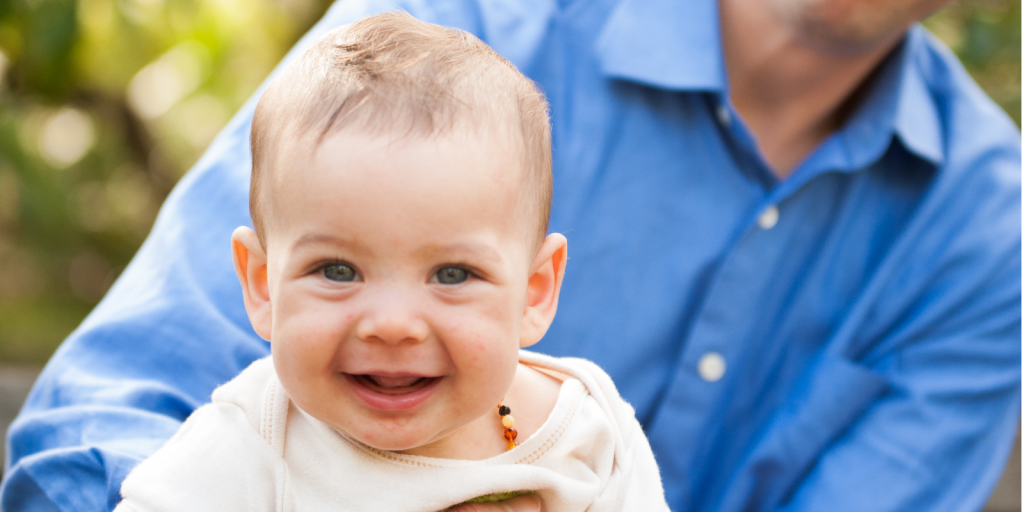 During my first pregnancy, a friend mentioned Elimination Communication, a process where parents listen to their children’s cues and realize they need to take them to the potty before they pee or poop in their diaper. Apparently, diapers really are a modern invention driven by profits. In poor countries, diapers aren’t used and no, babies do not eliminate all over their mom who, by the way, carry them in arms all the time until they learn to crawl.
During my first pregnancy, a friend mentioned Elimination Communication, a process where parents listen to their children’s cues and realize they need to take them to the potty before they pee or poop in their diaper. Apparently, diapers really are a modern invention driven by profits. In poor countries, diapers aren’t used and no, babies do not eliminate all over their mom who, by the way, carry them in arms all the time until they learn to crawl.
What is Elimination Communication?
According to the website Diaper Free Baby:
“Elimination Communication (EC) is NOT potty training. It is a gentle, natural, non-coercive process by which a baby, preferably beginning in early infancy, learns with the loving assistance of parents and caregivers to communicate about and address his or her elimination needs. This practice makes conventional potty training unnecessary.
Parents and caregivers who practice EC are often surprised by just how quickly they begin to experience clear and consistent communication with their infant; next to this, early potty independence is seen only as a frequently-occurring side benefit. Many EC’ing families experience first-hand what families in traditional cultures around the world have known for centuries: that by the age at which American parents are told to watch for supposed signs of “readiness” for toilet-learning, their children have already achieved toilet independence. “
I found the concept fascinating. I like the idea of not buying into advertisement which tries to tell me I absolutely need this or that product. As it turns out, I don’t necessarily need to put diapers on my baby, as they are there to create a need when there is none (other than the need for companies to make money).
When I got pregnant, I told people I would try my best to do Elimination Communication, and would use cloth diapers when I would feel they are necessary. I knew that we say a lot of things before having children, and then we realize how little we really know about raising them. And I often had dreams of Franklin, where I would see a little boy running around naked, enjoying being diaper free.
How did we start practicing Elimination Communication?
After giving birth the first time, I was pretty much incapacitated by a botched epidural (which I tried my best not to get), and I was feeling pretty lost. We used disposable diapers on Franklin for a few weeks, until we recovered and my mom arrived to help out. After that, we used cloth diapers. Elimination Communication was still on my mind, but I didn’t know where to start. Initially, Franklin would poop a little while breastfeeding, and he generally pooped a lot – about 4 times a day if I remember right. And boy did he pee! I would count the cloth diapers in the morning, and would often count as many as 8, and sometimes more than 10. I thought there was no way I could do Elimination Communication, and I even switched to disposable diapers at night since getting up every hour or so to change him was really hard on me (this was combined with getting up to breastfeed, as it took many months for us to master side lying breastfeeding).
 At around 6 months, Franklin started changing a lot. He was developing so fast, and was clearly becoming “a big boy”. He started sleeping more at night, and would take longer naps. At 7 months, he no longer needed to be rocked to sleep, something we absolutely needed to do before. This reinforced my feeling that if my child needs something now, it does not mean he will need it for ever. Many, many people brought up the idea of letting him Cry It Out (CIO) so he would sleep better. I swore to never do that, no matter how exhausted I was, and kept thinking “This too shall pass”. And it did. But beyond this progress, Franklin started getting very upset whenever I would change his diaper. He hated getting his diaper put on.
At around 6 months, Franklin started changing a lot. He was developing so fast, and was clearly becoming “a big boy”. He started sleeping more at night, and would take longer naps. At 7 months, he no longer needed to be rocked to sleep, something we absolutely needed to do before. This reinforced my feeling that if my child needs something now, it does not mean he will need it for ever. Many, many people brought up the idea of letting him Cry It Out (CIO) so he would sleep better. I swore to never do that, no matter how exhausted I was, and kept thinking “This too shall pass”. And it did. But beyond this progress, Franklin started getting very upset whenever I would change his diaper. He hated getting his diaper put on.
The idea of Elimination Communication came back to me, and I started noticing things. At 5-6 months of age, I noticed that whenever he was carried against me, he would not pee. And when he would wake up from naps, even 90 minute naps, he would be dry. But, a few minutes after being out of my arms or awake, his diaper would be wet. Aha! So, one day, I put him on the potty after a nap, ran the faucet and said “ssssss”. And, he peed. I was amazed. A few weeks later, I saw him grunt, put him on the toilet and he pooped.
I think what made everything easier was using cloth diapers. In disposables, I absolutely can’t tell how wet a child is, but with cloth, all you need is to check with a finger. Our modified version of Elimination Communication has been a lesson in humility for me. People think children are often blank slates who depend on us to learn everything, but the truth is that they are wise beyond their years (or months, as it were). Children have so much to teach us, and they are patient, loving and forgiving. Franklin could have given up on his clueless parents who can’t manage to tune into his elimination needs, but he did not. He kept communicating to us that he did not like diapers, and only peed when he really needed to, thus leading me to notice a few patterns of dryness following long periods of time.
How I did Elimination Communication with my 2nd boy
After giving birth to Nicholas, I knew I wouldn’t try catching poops for several months. Pre-solid food poop is liquid and comes out of nowhere (to me). I would put him on the toilet to pee before every diaper change, though. When he started eating solid food, his poop immediately changed. After seeing him grunt one day, I put him on the toilet, and he pooped. After that, I would put him on the toilet before every diaper change (I still used diapers the rest of the time), and see if he’s poop or pee. Because I’m so busy with 2 kids now, I don’t pay a lot of attention to cues. But, it does not matter. Nicholas seems to know, instinctively, that it’s time to pee or poop. If he starts playing with stuff around the toilet, I know there’s nothing. If he needs to go, he generally will.
Conclusion
We sometimes think that babies can’t control themselves. If they need to pee, it comes out. But I think they are actually able to “hold it” for quite a while. Not very long, obviously, but still. Most of the time, Nicholas does not tell me he needs to poop. Or, maybe I just don’t see it. But he will push when put on the toilet, if he needs to. My advice to you, if you want to try Elimination Communication but don’t want a totally diaper free baby, is to put your baby on the toilet before every diaper change, and use cloth as much as possible so you need to change him more often. I bet you’ll be surprised at how many poops will end up in the toilet, rather than in the diaper!

